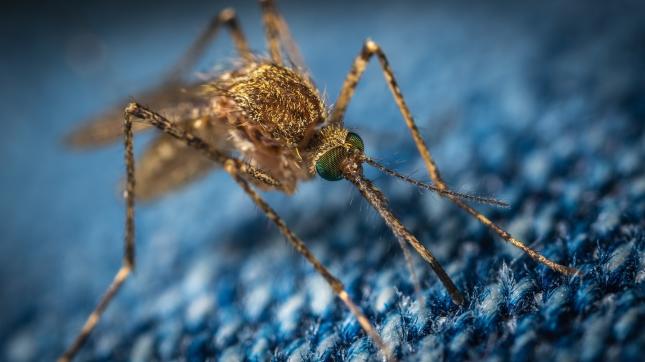West Nile Virus
What is West Nile Virus?
West Nile is an insect-borne flavivirus commonly found in birds, horses, humans, and other small mammals. West Nile was first discovered in the United States in 1999.
More information can be found at https://www.cdc.gov/westnile/index.html

How is West Nile Virus Spread?
West Nile is commonly spread by the bite of an infected mosquito, mosquitos become infected when they bite an infected animal.
Some birds that are predators (such as hawks and owls) or scavengers (such as crows) may become infected after eating sick or dead birds that were already infected with West Nile virus. Some birds can also become infected by eating an infected mosquito.
West Nile is NOT spread through:
- Coughing or Sneezing
- Touch
- From handling infected birds - We do still recommend using gloves or an inverted plastic bag to handle any dead animal
- By eating infected animals - when the meat is properly cooked
Can I get West Nile Virus directly from birds?
There is no evidence that a person can get infected from handling live or dead infected birds. However, you should avoid bare-handed contact when handling any dead animal. If you must pick up a dead bird, use gloves or an inverted plastic bag to place the bird in a garbage bag.
Do Birds infected with West Nile Virus die?
Although some infected birds, especially crows and jays, frequently die of infection, most birds survive.
How can I prevent West Nile Virus?
There is no vaccine to prevent West Nile Virus infection. West Nile is spread to humans through the bite of an infected mosquito. Mosquitoes bite during the day and at night.
The best way to prevent West Nile is to protect from mosquito bites. Use insect repellent and take steps to control mosquitoes indoors and outdoors. Use screens on windows and doors to keep mosquitos outdoors.
Stop Mosquitos from laying eggs:
- Once a week, empty and scrub items that hold water such as tires, buckets, planters, toys, pools, birdbaths, flowerpots, or trash containers.
- Mosquito Dunks® or Mosquito Bits® can be used in any standing water including rain barrels, bird baths, ponds, tree holes, planter reservoirs, rain gutters, etc.
- Turn over, cover, or throw out items that hold water
Are Mosquito Dunks® or Mosquito Bits® safe for the birds?
- YES! Mosquito Dunks® are non-toxic to people, pets, wildlife, birds, fish, and plants - but release a bacterium that is toxic to all species of mosquito larvae.
- Mosquito Dunks® are approved for use in organic production
- Each Dunk® kills mosquito larvae for 30 days or more
- Mosquito Bits® are quick acting - killing mosquito larvae within minutes

